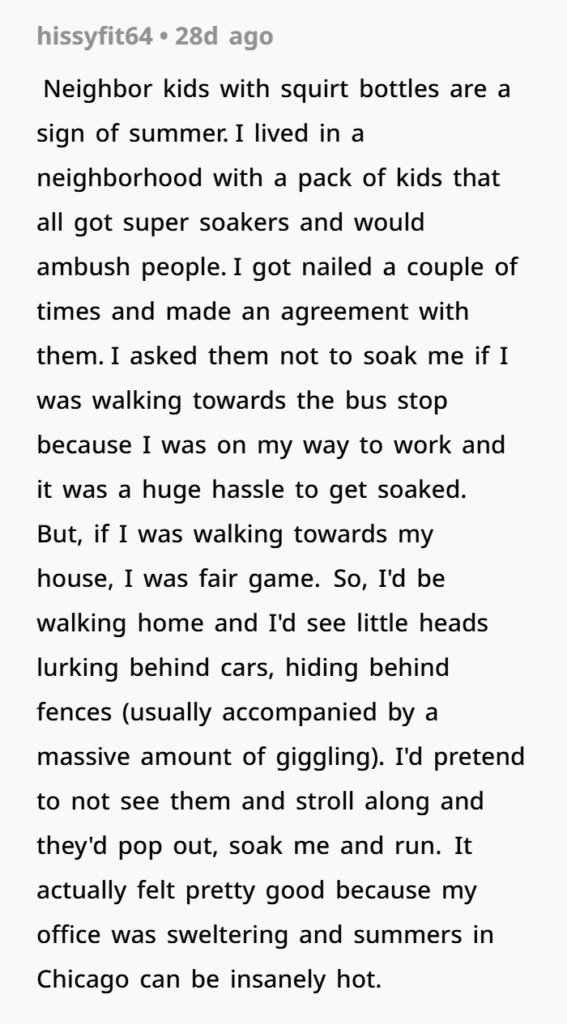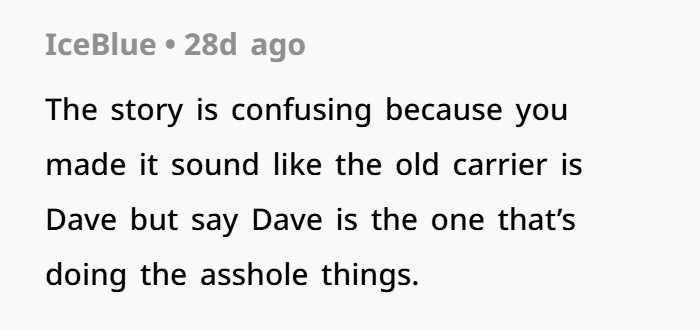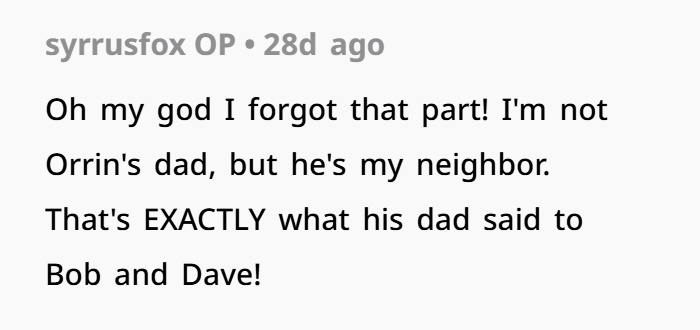Neighborhood Kid Outsmarts Awful Mailman with Disgusting but Perfect Revenge
In this explosive tale of grassroots justice and youthful mischief, a neighborhood plagued by a tyrannical mail carrier finds unexpected relief at the hands of a clever 12-year-old boy. Known for his rude behavior, trampling through flowerbeds, and the shocking habit of tossing bottles of his own urine into gardens, “Mailman Dave” seemed untouchable. His misbehavior was routinely dismissed by his father, Postmaster Bob, and his father’s best friend, the local sheriff, Steve. The community’s complaints were met with platitudes about Dave’s hard life and excuses that did little to address his offensive conduct.
That changed one summer afternoon when Dave’s poor treatment extended to a group of local kids. Unluckily for him, one of those kids—Orrin—was both a crack shot and fed up. Armed with a high-powered water pistol, Orrin turned Dave’s own disgusting habit against him, soaking him with a concoction of Dave’s urine and a can of Red Bull. The act triggered a mixture of horror, hilarity, and ultimate poetic justice as Dave fled in disgrace, drenched in his own filth. When Bob and Steve came looking for answers, the community responded with a unified wall of silence—and a perfectly timed echo of their own dismissive catchphrase, “boys will be boys.” Dave never returned, and Orrin was celebrated as a local hero.
A mean mailman can really ruin the vibe, as one neighborhood was finding out the hard way

After changing mail carriers, they were saddled with a particularly nasty mailman who had no respect for the neighborhood or the people living there
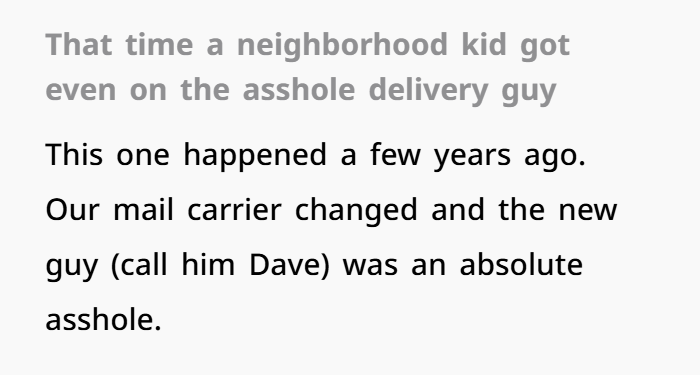
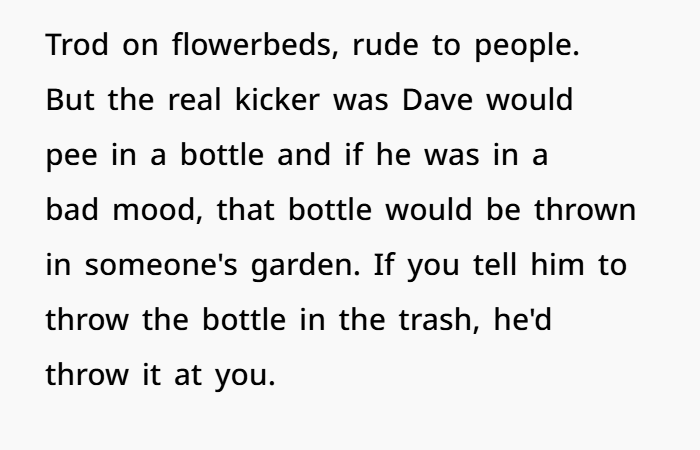
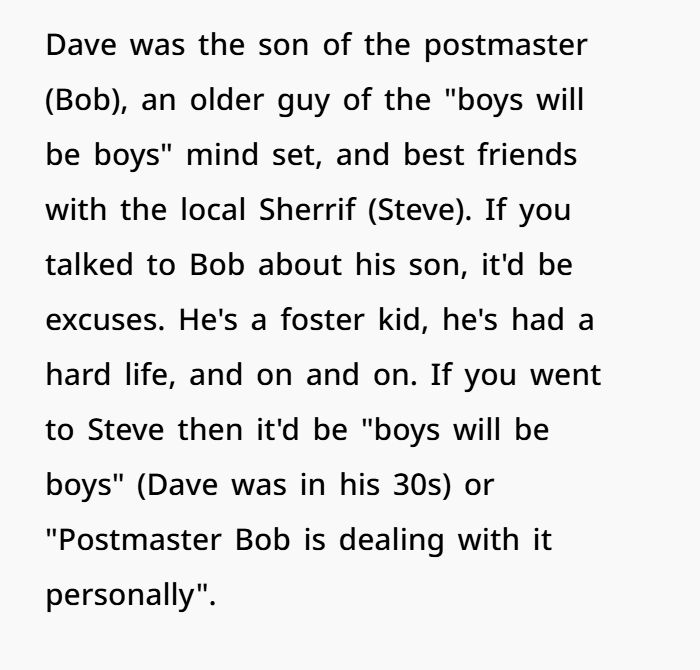
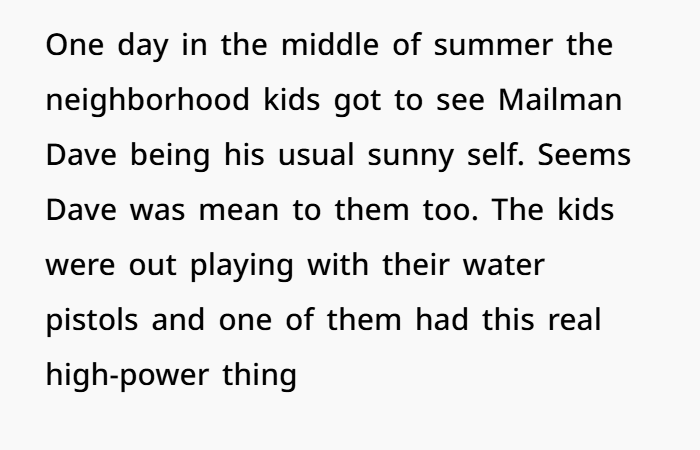
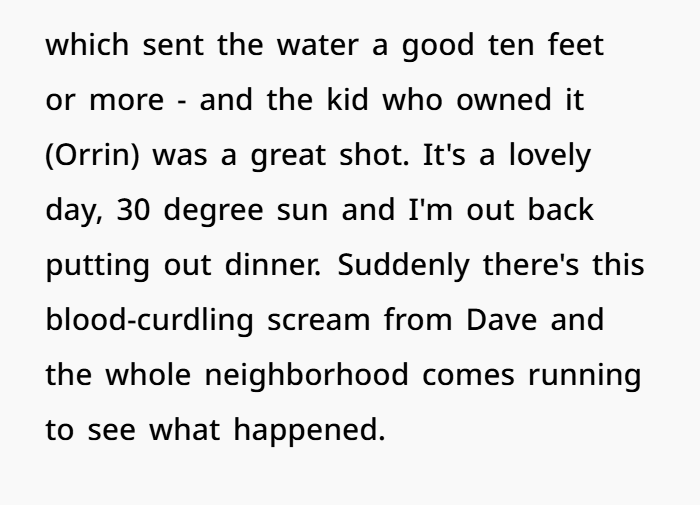
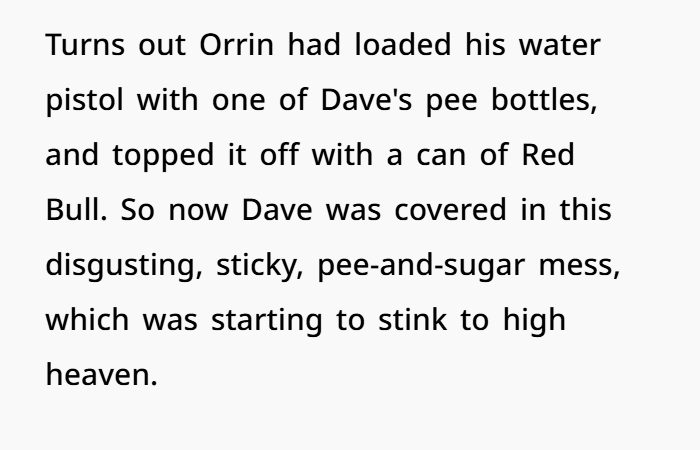

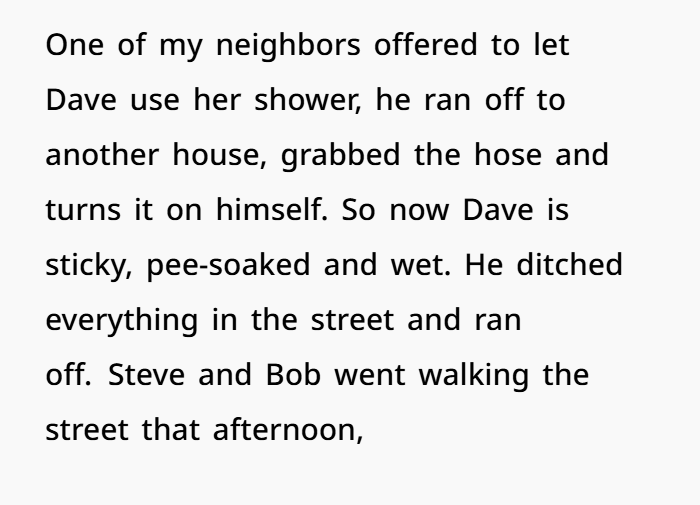
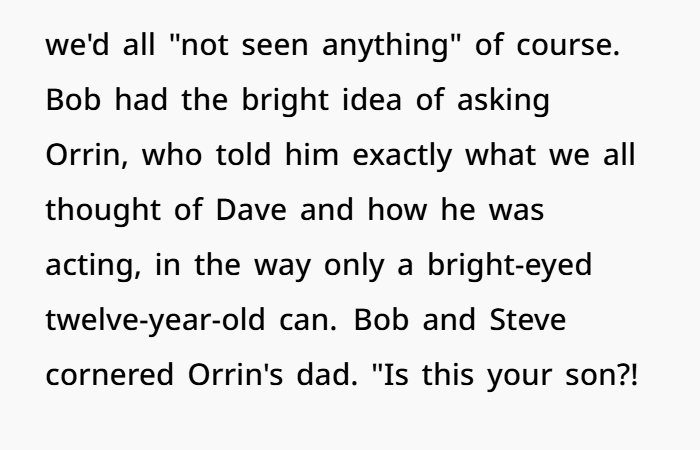
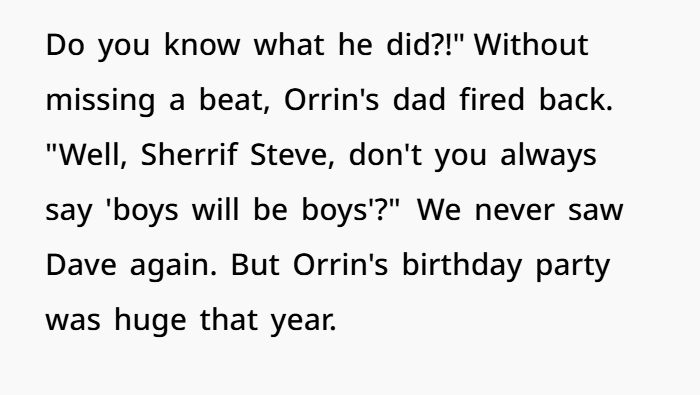
Accountability, Misconduct, and Community Responses in Public Service
At the core of this story is a theme that resonates deeply in many communities: abuse of power and the frustration of institutional inaction. Dave’s behavior as a public servant falls squarely within what labor and conduct oversight bodies would categorize as gross misconduct. Acts like throwing urine-filled bottles, displaying open hostility, and disrespecting private property go well beyond inappropriate—they verge on criminal, particularly under public nuisance and biohazard statutes.
The Legal and Ethical Dimensions
In most jurisdictions, public service employees—especially those employed in postal or municipal roles—are held to standards outlined in codes of conduct and employee ethics charters. These typically include clauses about respectful behavior, health and safety compliance, and the professional handling of disputes. Dave’s use of urine-filled bottles is not only unhygienic and aggressive, but could also be considered assault with a bodily fluid under some state laws. For example, in several U.S. states, intentionally exposing others to bodily fluids is a misdemeanor or felony, depending on whether it results in contact and the level of risk involved.
Beyond legalities, Dave’s actions create a hostile environment not only for homeowners but for children—raising concerns of emotional distress and child endangerment. It’s particularly notable that his father and the local sheriff chose not to intervene meaningfully. This points to a form of institutional cronyism, where personal relationships override accountability. It mirrors real-world issues seen in law enforcement or municipal corruption scandals, where whistleblower complaints are ignored due to nepotism or personal loyalties.
Community Response as Social Justice
What makes this case fascinating—and cathartic—is the community’s eventual, coordinated response. The children’s participation, led by Orrin, becomes a stand-in for the neighborhood’s collective frustration. His choice to weaponize the very source of Dave’s antisocial behavior is symbolic: turning the tables in the most literal, visceral way possible.
The neighborhood’s response—feigned ignorance and ironic use of the sheriff’s own words—speaks to a form of civil resistance. This kind of community-driven justice is informal but powerful. It relies on social cohesion and moral solidarity, qualities that sociologists like Émile Durkheim and Robert Putnam identify as key to maintaining social order in the absence of effective institutional oversight.
This episode also embodies principles found in restorative justice, albeit through non-traditional means. The goal isn’t to punish Dave formally, but to hold up a mirror to his actions so vividly that he cannot escape the consequences. His departure, rather than being forced by official reprimand, is brought about through social pressure and personal humiliation—a method often more effective in close-knit communities than legal action.
The Role of Children and the Importance of Agency
Orrin’s role also underscores the power and perception of children in stories of justice. While often seen as passive observers in adult conflicts, this narrative flips the script. Orrin’s direct action—fearless, inventive, and hilarious—reminds us that children often see through adult excuses with clarity and moral certainty. In media and folklore, such acts by young people often serve as catalysts for change, from “The Emperor’s New Clothes” to modern coming-of-age tales.

His father’s comeback, “Well, don’t you always say ‘boys will be boys’?”, cuts especially deep. It highlights the hypocrisy of those who defend bad behavior with tired aphorisms—until the shoe is on the other foot. It’s a line that encapsulates not only the community’s pent-up anger but also their deep understanding of how empty those justifications really are.
Long-Term Impact and Lessons Learned
The result? Dave vanishes, not due to any formal investigation or reprimand, but because the informal systems of social accountability—the collective will of an outraged community and the sharp wit of a clever child—made it impossible for him to remain. It’s a rare and satisfying case where poetic justice is delivered cleanly and without long-term collateral damage.
From a broader lens, the story is a reminder that unchecked behavior by those in power, no matter how seemingly minor their role, can have lasting effects on a community. It also reaffirms the importance of speaking up, banding together, and sometimes, letting the kids take the lead when grown-ups fail to do the right thing.
In the comments, readers celebrated the plucky kid, with one suggesting he be rewarded with a new water pistol for his next birthday
